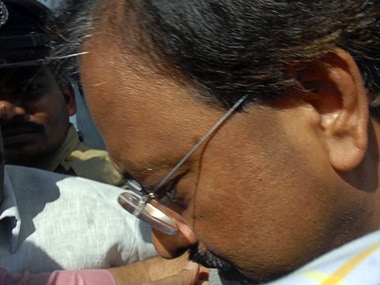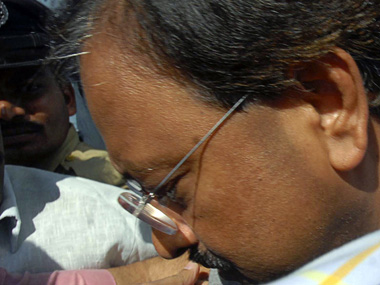Kenneth Lay of Enron infamy was convicted but before he could be sentenced he died of a massive heart attack, probably engendered by guilty conscience, though conspiracy theories started doing their rounds in the immediate aftermath of his death. And ironically his conviction itself was annulled under a quaint provision of the American law that seems to echo the first part of the adage - all dead men are good and all brides are beautiful. It is quaint because he was alive to defend himself before he was convicted. Be that as it may but all hell broke loose and various affected parties started scrambling for action against the estate of the deceased with the anticipated disgorgement order of a staggering magnitude — $250 million never seeing the light of the day. [caption id=“attachment_2193093” align=“alignleft” width=“380”]  Reuters[/caption] While the cause of heart attack can be clinically explained, no one can say with certitude if the grim prospect of disgorgement weighed down on him and eventually took his life. There are some parallels in this regard with India’s own Enron, i.e. Satyam, whose flamboyant founder Ramalinga Raju was sentenced to seven year imprisonment by a special court in Hyderabad on 9 April 2015. One prays for his long life in the interest of justice because the Indian law is resilient enough to proceed against the directors and officers of a company that had long ago shed its individual identity and merged seamlessly with another. The government of the day in 2009 was keen on putting the business of Satyam back on the rails acting apparently under the too big to fall theory normally holding sway in the context of bank failures necessitating the government bailout howsoever unpalatable and unethical it may be. In all fairness the government though it didn’t give any financial help to the beleaguered Satyam Computer but only constituted a fire-fighting team that would find a suitor to takeover its business. Satyam’s merger with Tech Mahindra was thus without winding up whereas normally a company is liquidated after elaborate last rites consisting in winding up proceedings are carried out. In a winding up proceeding, the shenanigans of the promoters come out. Was Satyam merged post haste to cover up such shenanigans? Was quick revival of business then only a fig leaf? Even if it was, there is nothing in the law to preclude the exhumation of Satyam with the limited object of nailing its officers and promoters complicit in its downfall. One wishes if the trial court had recommended such proceedings in the interest of its erstwhile Indian shareholders who were left holding the can. Their American counterparts got compensation under the US law as pointed out in these columns by the author on 9 April 2015. The legal system must move against Raju and others convicted to find out if indeed the funds of Satyam were diverted to its anagrammatic and enigmatic subsidiary Maytas whose business was in turn post haste sold of to a government promoted company IL&FS, the infrastructure finance company. Was this too a cover up attempt? Raju claimed in his mens rea that he was driven by a noble motive to dress up the accounts of the company - to shine in the eyes of the shareholders especially of the supposedly blue-blooded foreign vintage. But only a thorough investigation would reveal if indeed there was diversion of funds to Maytas before he made a tame surrender. In other words, was there a fraudulent preference frowned upon by the winding up court? If so a disgorgement order can be passed under the company law on Raju and others. Absence of an effective benami law would be a handicap given the Indian expertise in hiding one’s wealth in fictitious names. If indeed the exercise culminates in a disgorgement order, the garden variety Indian shareholders can be compensated, especially if Raju and co had made a killing in the share market before the mea culpa a la Kenneth Lay who made a pile by trading his own company’s shares on the basis of cooked up figures, leaving the employee welfare funds of the company that had been inveigled to invest in the shares holding the can.
If so a disgorgement order can be passed under the company law on Raju and others
Advertisement
End of Article


)

)
)
)
)
)
)
)
)



